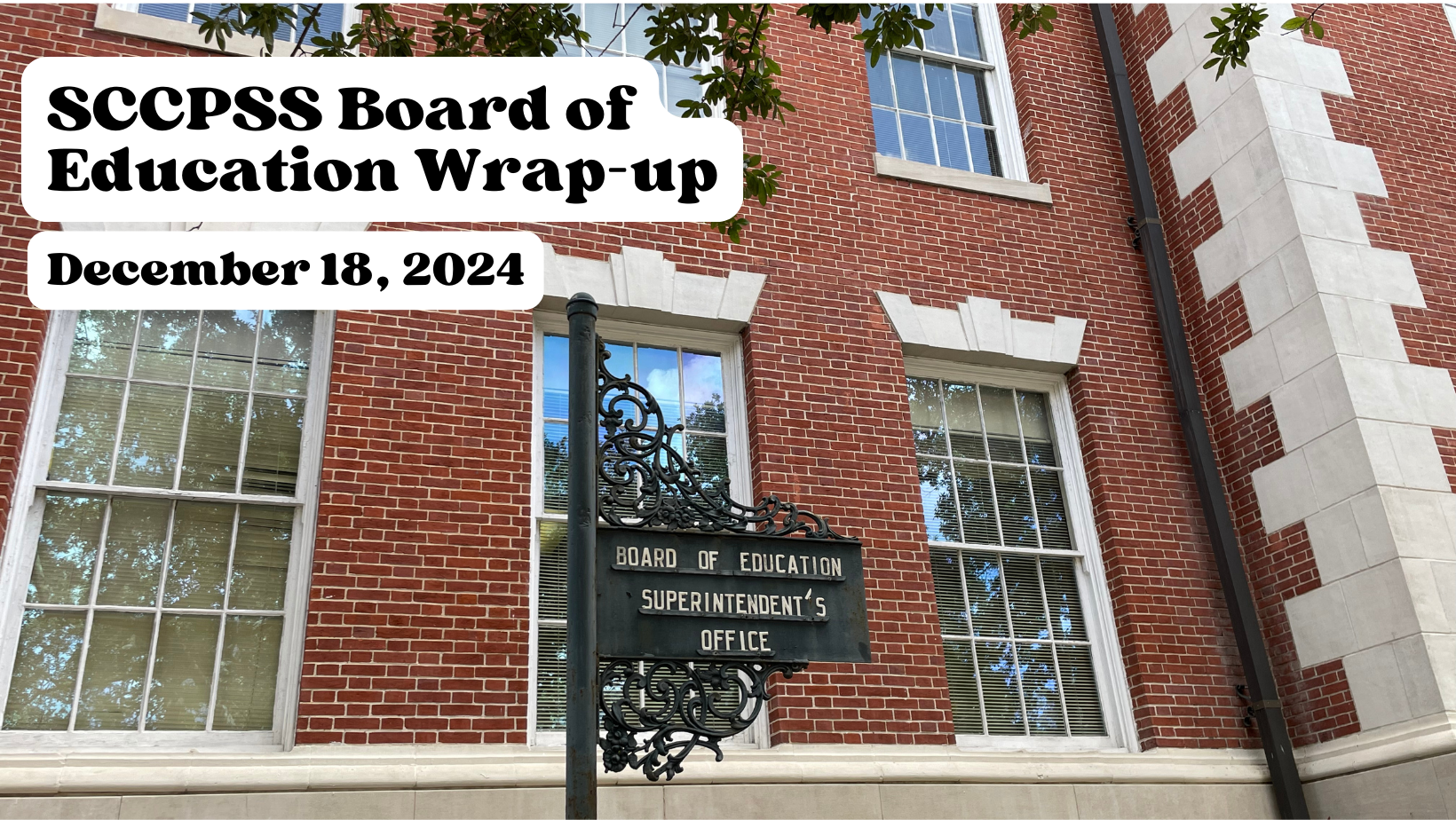By Ansley Standridge
IN ITS December 18th meeting, the Savannah/Chatham County Board of Education reviewed BOE policies on Dual Enrollment, Student Complaints and Grievances, Student Support Team, and Internet Acceptable Use.
Dual Enrollment was faced with new regulations from the State, prompting conversation from Dr. Bingham, representing District Six, about the numerical system used for Dual classes and its flaws.
Currently, students taking Dual classes are awarded letter grades that are converted to numerical values. Students that receive an A are given a 95, B’s are an 85, C’s are a 75, and a D is a 70.
Dr. Bingham argued against this system, saying that students are discouraged from taking these classes as it could hurt their class rankings, which could in turn hurt their chances of getting into certain colleges.
He suggested a policy revision and was supported by members Grabowski, Hoskins-Brown, Hall, and Kachmar.
Student Complaints and Grievances faced regulations from the State as well regarding some of its language, specifically on Title IX and sexual harassment. The Board moved past these changes with no comments.
Student Support Team was revised to make the language more clear regarding the district’s Multi-Tiered Systems (MTSS) and Student Support Team (SST) roles specific to the SST process.
They’ll be reviewing this in a second read during the January BOE meeting, so there were few comments on it in this meeting.
Internet Acceptable Use will also be reviewed with a second reader in the future, but had language changed to make the district’s online platform more clear.
Some schools within the district have allegedly been trying to create their own sites to be more engaging, but it presents a liability risk for the district as these websites are being created by individuals with their own credentials. The goal with the language changes for this policy is not to restrict these schools, but to include the Board in these websites to ensure everything is clear.
To round out this period of the meeting, the Board approved the 2025 calendar of meetings and the Memorandum of Understanding with the County to continue the Positive Peer Influencers Program, which helps local teens make healthy choices and educates them to the dangers of opioids, including fentanyl.
Consent Agenda
Before the Board voted on the Consent Agenda, Savannah citizen Tony Riley requested to speak on item 7.18 MC22066 - (ESPLOST) Construction Management Consulting Services.
Riley said that when he previously spoke to the Board about the contract being bid, he couldn’t find any record to show it was. He questioned if the money was actually being spent and if it was profitable for taxpayers if it doesn’t seem to be yielding results.
Following Riley’s time, the Board voted to approve the agenda items.
Strategic Priority One: Student Growth
The focus for this priority is on student growth and achievement. The Board voted to purchase Lexia LETRS 3rd Edition and LETRS for Administrators materials to assist K5 teachers, but there was a discussion on where the money would come from.
It was proposed as coming out of the fund balance, but Dr. Hoskins-Brown questioned why it wouldn’t come out of purchase services and professional development.
Larry Jackson, the CFO, was presenting this section and agreed to review the fund balance budget. He said that he’d report back with what he found, but the Board approved the motion for the time being.
The Board then reviewed the ETE Georgia Power Grant, a three-year grant the Board was awarded in 2022. For the third year of the grant, $727,500 has been awarded.
This funding will be utilized to establish a K-12 STEM/STEAM track at Gould Elementary, Mercer Middle, and Groves High Schools; enhance early childhood learning at Henderson E. Formey and Gould Elementary Schools; support the Leading Empowering Advancing Parents (LEAP) program; address barriers hindering postsecondary education or career success. The Board approved the budgeted expenditures.
Strategic Priority Four: Fiscal responsibilities
After brief presentations on Financials and ESPLOST, the Board voted on bids, RFQs, and RFPs related to annual contracts on things like metal detectors, small construction services, Multimedia Classroom Presentation Systems, among other things.
In exciting news, many of the bids were awarded to local, Savannah-based companies.
Toward the end of this agenda, the Board had a lengthy discussion on the ESPLOST V Resolution. For those who don’t know, ESPLOST stands for Education Special Purpose Local Option Sales Tax, and is a 1% sales tax designed to raise funds for school construction or renovation projects.
The proposed resolution included funds for Charter schools for things like technology, buses, and equipment, but also for site improvements and property repairs at Coastal Empire Montessori Charter School and Savannah Classical Academy. The charter schools, while they are public schools, sit on private property.
Kachmar gave a passionate speech explaining that while he is in full support of Savannah’s charter schools and is willing to explore other options, he does not believe public money should be used to repair private property.
Additionally, he referenced previous times where other charters made similar requests and were denied. He proposed an amendment to the resolution in which all mentions of repairs or property work were struck.
The Board was split on the topic. While Grabowski and Hall supported Kachmar, President Moss and Dr. Bingham were against it.
Dr. Bingham argued that the budget had room for those projects and there wasn’t a reason not to allocate it to property repairs if it’s possible.
He said that previous denials to other charter schools aren’t a reason the Board should continue to deny these requests, but that the Board should move forward with this resolution and do better for the other charters as well.
Moss remarked that he was the only member who has founded a charter and elaborated on all the money charters are expected to come up with on their own.
He stated that he was tired of conversations comparing charter schools to the district schools, claiming that all of them are public and that charter parents pay the same taxes other parents do.
Dr. Bingham spoke again on the relationship between the Board and charter schools in reference to the amount of lawsuits brought against the Board. He claimed that anytime there are issues at the charter schools, there’s never a phone call or email sent to try and resolve it, but a lawsuit with no warning.
He pleaded with the charter community to try and resolve issues before taking legal actions as it makes voting for resolutions such as this one an easier topic.
Kachmar spoke once more and agreed with Dr. Bingham about the lack of communication between the charter schools and the Board and defended his amendment again, restating his view that public money should not be spent on private property.
The Board voted against the amendment and in favor of the resolution.

